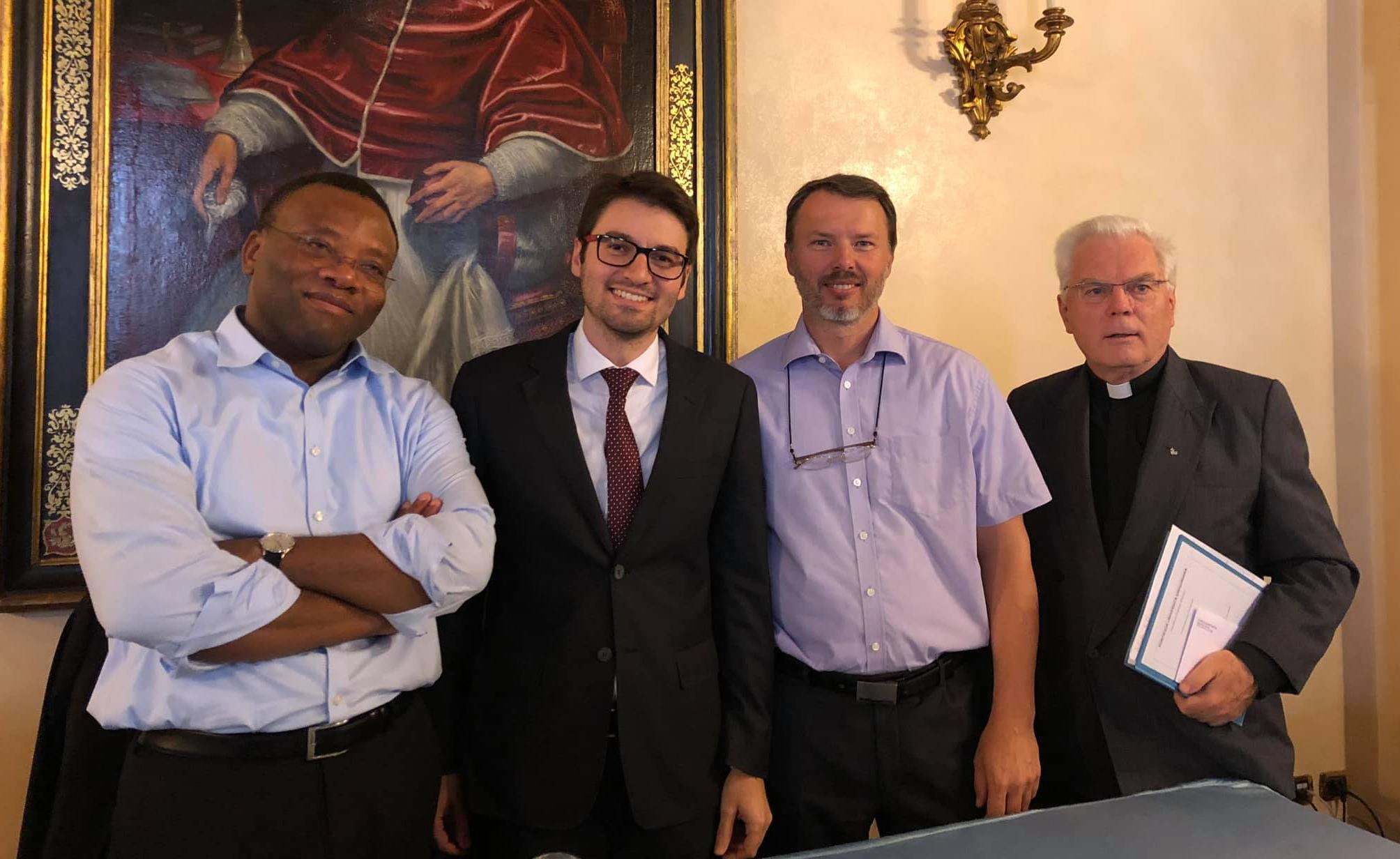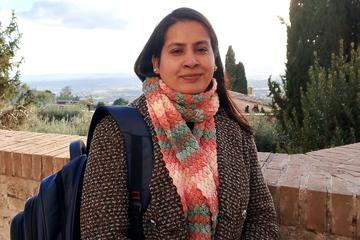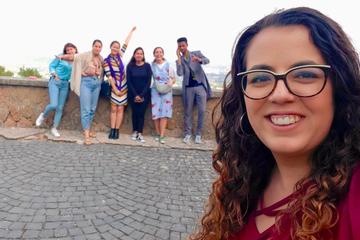
By Laura Ieraci
ROME — With the curiosity, work ethic and love for research typical of most journalists, Filipe Domingues committed to doctoral work in a field entirely new to him and unrelated to his previous training and profession: social media consumption by young adults.
Domingues had been working for six years as a financial reporter for O Estado de São Paulo, a large newspaper and newswire in his native Brazil, when he decided to pursue a two-year master’s degree in communications at the Pontifical Gregorian University.
Within a few short months of his arrival in Rome in 2012, The Lay Centre, where he resided during his studies, offered him the opportunity to become a leadership scholar. The added stability that came with the scholarship encouraged him to pursue his licentiate and then his doctorate at the Gregorian.
Last month, after seven years of dedicated study, Domingues successfully defended his doctoral dissertation, titled “Social media as a moral space: Young people and the challenges of the throw-away culture.”
Inspired by the work of the late British media and communications scholar Roger Silverstone, Domingues said he sought to define more clearly in his dissertation the concept of a throw-away culture and how the media build and sustain this cultural norm.
“I wanted to offer an ethical reflection and proposal to the ordinary person who deals with social media in everyday life,” he said.
His dissertation includes an analysis of the discussions about technology among young adults on the Facebook page created for the pre-synodal meeting of the Ordinary Synod of Bishops on Young People, the Faith and Vocational Discernment in 2018. About 15,000 young people followed the debates on Facebook, he said.
“The question about technology had about 600 comments in six languages, so I organized and analyzed those comments in order to understand better the moral questions that young people raise about social media,” he explained.
The formation he received at the Gregorian regarding Catholic Social Teaching influenced his “critical perception of the dominant culture of our era and my final proposals (in my dissertation), which are largely oriented towards Christian ethics,” he said.
Domingues added his appreciation for the close relationships he developed with professors at the university. “They became real guides on our path and, sometimes, even friends,” he said.
He also described his six years as a resident and leadership scholar at The Lay Centre as “really powerful and rich.”
“In a world in which it has become harder to see the face of the other — the one who is completely different from the self but who shares the same global environment — The Lay Centre puts us in contact with all kinds of ‘others’ and beautifully challenges us in the everyday life, by inviting each resident to practise the gift of hospitality,” he said. “There are moments in which you give more and other moments in which you receive more in the community, if you allow yourself to be touched by it.”
Domingues, who currently lives in São Paulo and covers health, science, education and the environment for the G1 news website, said he intends to integrate his academic interests with journalism and eventually seek a position as a communications professor.
He said his time in Rome was beneficial for his journalism career as well. He has been integrating his experience in covering Catholic issues in his current position at G1, even staying in Rome for an additional week after his doctoral defense to cover the Synod of Bishops on the Pan-Amazon Region.
Caption: Lay Centre alumnus Filipe Domingues poses with members of the Faculty of Social Sciences of the Pontifical Gregorian University after the defense of his doctoral dissertation at Oct. 4. From left to right: Father Jacquineau Azetsop, SJ,the faculty dean, Father Peter Lah, SJ, Domingues, and Father Johannes Ehrat, SJ.


